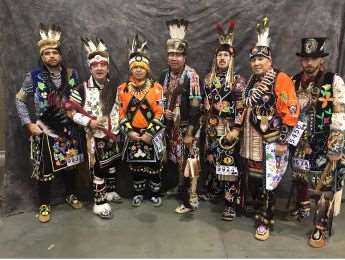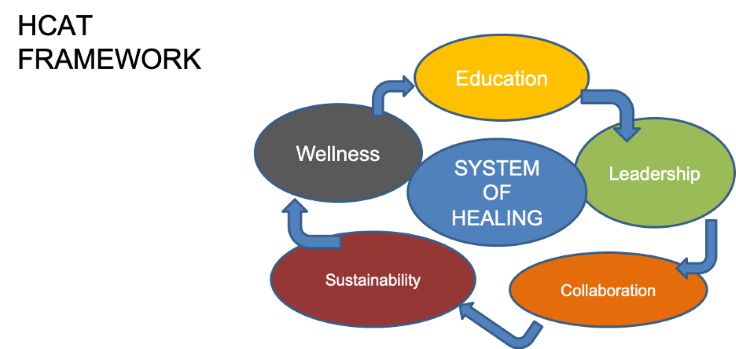Lac du Flambeau Family Circles AODA Traditional Parenting Program
Coalitions That Adopted
Strategy Type
Community-basedStrategy Goal
To reduce the rate of alcohol and drug abuse within families through instruction and practice of Ojibwe Indian culture, language, values and lifestyles; assist individuals and families in discovering and strengthening their cultural identities; and develop holistic community wellness through the teachings and practice of traditional Ojibwe philosophies.Intended Population
Families on the Ojibwe Indian Reservation.Strategy Background
The Lac du Flambeau Family Circles alcohol and other drug abuse (AODA) Prevention Program is a culturally relevant method of teaching healthy lifestyles for Indian families. The program was developed out of a need identified by Indian families for AODA information that is culturally relevant to its people.
 The Lac du Flambeau tribe believes that traditional culture offers healthy alternatives to otherwise unhealthy acculturated behavior, ideals, values, morals, and knowledge. Indian people have been exposed to years of acculturation that have left in its wake a damaged cultural self-esteem and self-concept, as well as feelings of apathy and helplessness. Historic and generational trauma experienced by American Indian and Alaska Native communities further produces symptoms of loss, grief, lowered identity formation and role confusion, increasing vulnerability to alcohol abuse.
The Lac du Flambeau tribe believes that traditional culture offers healthy alternatives to otherwise unhealthy acculturated behavior, ideals, values, morals, and knowledge. Indian people have been exposed to years of acculturation that have left in its wake a damaged cultural self-esteem and self-concept, as well as feelings of apathy and helplessness. Historic and generational trauma experienced by American Indian and Alaska Native communities further produces symptoms of loss, grief, lowered identity formation and role confusion, increasing vulnerability to alcohol abuse.
The way Indian families act in their relationships is directly related to self-perceptions, values, self-esteem and self-awareness. Understanding that changing these feelings and behaviors involves changing oneself, the curriculum used by the coalition is two-fold in nature:
- AODA prevention
- Increase self-awareness and self-esteem through cultural awareness
Its emphasis is on nurturing oneself, one's family members, and one's community with the ultimate goal of preventing alcohol and other drug abuse. Further the program seeks to make life easier and happier for all family members by providing them with the opportunity to learn how to replace old, problematic ways of interacting with the nurturing ways of traditional Ojibwe culture.
The project is centered around three interconnected focus points designed to strengthen families through cultural immersion training, improve inter-organizational collaboration, and increase overall community awareness about substance use and abuse. At the heart of each strategy, lies the concept of TEK: “Traditional Ecological Knowledge,” or knowing what works.
As Ojibwe tribal elders have said, "We are in the seventh generation of Ashki Anishinaabe (new people)." Therefore, the tribe believes it is up to them to make the change – no matter how difficult or painful – in order to grow. In order to choose a healthy future for the community’s children and generations beyond, the tribe understands they must face the pain of making choices and avoid letting others make the choices for them.
In spite of all the problems Indian families have endured through history, there is still a strong family allegiance, which is the basis for the program, as it seeks to build upon this basic family strength. True family strength lies in cultural heritage, and it is through this culture that the Lac du Flambeau tribe fulfills their part in the name of the creator, Gitchi Manido.

Videos About the Family Circles Program
Family Circles Statistics
Strategy: Training Facilitators
Strategy: Provide Program Structure

Family Circle Trainers
Dr. Alton Sonny Smart, FC Master Teacher, Professor, UW Stevens Point, Tribal Judge, Bad River Tribal Court, Vietnam Era Veteran
Mobile: (715) 573-7960 | ssmart@uwsp.edu
Ernie St. Germaine, FC Master Teacher, Tribal Judge, retired, Educator, retired
Mobile: (715) 892-5199 | birkie.founder3@gmail.com
Melissa Doud, Cultural Competencies Teacher, WI. Veterans Liason, Educator, U.S. Army retired
Mobile: (715) 892-3683 | mdoud47@yahoo.com
Dr. Brian Jackson, FC Trainer, Teacher Assistant Professor, Medical College of Wisconsin
Mobile: (715) 614-1194 | brjackson@mcw.edu
Elder Doreen Wawronowicz, CEO, Waaswaganing Indigenous Institute Teaching Learning
kamewin@gmail.com
Family Circles Statistics
Family Circles facilitators reported the following observations:
- Participant’s increased ability to speak heartfelt, personal stories and life experiences
- Increased open, honest self-reflective conversations among participants about their lives, pain and community losses
- Increased cohesion and connecting with each other, culture, community and children
- Participants felt included and accepted
- Enjoyed language sessions expressing hope for future generations
- Ability to set goals and accomplished
- Growth, courage and resilience
- Didn’t want the program to end; initiated a “women’s group and several proceeded to attend Family Circles facilitator training
- “Community momentum is about being consistent and intentional to provide experiences to grow, and mentoring more families and providers into the circle of care.” - Brian Jackson, Project Director
Highlights/Honorings
- Original Curriculum Developers: Ernie St. Germaine & Dr. Alton “Sonny” Smart still at the core of serving as a resource.
- Development of Family Circles Facilitator Training Program certified by Elders and Supported by Lac Du Flambeau Tribe.
- Public Service Announcement
- History of Family Circles
- Family Circles’ 24 week project for parent group curriculum has sustained seven years of programming
- Each session incorporates mindfulness and reinforces several words or phrases in each session:
- When the mind is ready, teachers or teachings will appear
- When the community is ready, teachers and teachings will appear
- All Anishinabe (or human beings) want to be understood and appreciated
- Staff time, work hours and expertise have successfully been leveraged to extend project impact through partnerships with tribal council and other tribal programs. These groups foster connections that bring facilitators and participants into Family Circles, growing the confidence in the project’s sustainability over the ongoing journey.
- Community attitude is shifting to a more compassionate, less punitive approach to families struggling with substance abuse/use.
- The project is moving forward to credibly authenticate Family Circles as a best practice in preparation to disseminate widely among American Indian/Alaska Native communities.
- Each session incorporates mindfulness and reinforces several words or phrases in each session:

